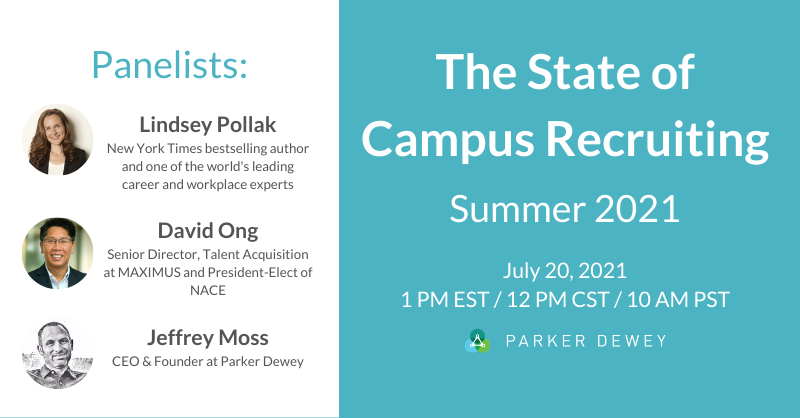
A Hands-On Approach to Building Core Skills
This week’s first featured article argues that when it comes to new tech jobs, “skills [are] more important than knowledge.” And while the tone emphasizes hard technical skills, the real takeaway is around the soft skills (or as I prefer, “Core Skills”) including:
- The ability to “quickly master new languages and technologies”
- “Excellent communication, interpersonal, problem-solving, presentation, and organizational skills”
- “Proven ability to work with a team, give inputs, coach (and be coached), and support colleagues”
The reality is that these three skill sets—adaptability, communication, and teamwork—are more important than hard technical ones. (Plus, they also align with our 2021 data on the top ten skills required for entry level positions in 2020.) And as the article suggests, “these kinds of abilities, skills, proficiencies are only built through active learning, through doing, just as an athlete, a surgeon, or a carpenter builds their skills through learning by doing.”
This is also why companies need to look beyond the majors that sound like job titles. For example, in addition to mastering a subject, liberal arts students learn how to learn. Even if they’re not tech wizards or master engineers right out of their degree program, they have the skills to pick up those hard skills on the job, ask great questions, communicate well, and problem solve. Swarthmore College’s Alumni SwatWorks Micro-Internship Program is a great example of how alumni-turned-employers see the value and in turn, provide opportunities to those liberal arts students.
This is not to say that we should ignore tech or other hard skills—they’re necessary and important. But as the article says in closing, “In the 21st century, it’s time to redesign education to deliver what makes us successful in industry today, not what made sense a few hundred years ago.” And what better way to encourage students to learn by doing than through Micro-Internships?
Jeffrey Moss, Founder and CEO
Upcoming Webinar

Join us for our summer edition of The State of Campus Recruiting! We'll continue on our recent theme of "reinventing university recruiting," and discuss what emerging talent is looking for after a year+ of disruption, how companies are responding to the call for more remote opportunities, and employer branding to attract talent across generations.
Articles of the Week
Today’s Tech Jobs: Skills More Important Than Knowledge - RTInsights
Why learning on the job is more important than ever (and 5 ways to do it better) - Fast Company
Workers Are Quitting in Record Numbers - SHRM
Today’s Tech Jobs: Skills More Important Than Knowledge - RTInsights
“The tech education that is needed, then, is formed on the basis of active learning, project-based learning, and learning by doing: science and researched-backed learning methods, the efficacy of which has been proven, and the result of which is true preparation for work in tech jobs in the 21st century. It’s clear that companies want skills and are moving towards skills-based hiring, so it’s well past time that education moves into real skills-based learning.”
In the ever-evolving tech world, mastering hard skills alone won’t cut it. What’s needed instead: “active learning, project-based learning, and learning by doing.” This article explores how companies and schools can redesign education and on-the-job learning to fit 21st century needs.
Related reading: Why “Soft” Skills are Core Skills
Why learning on the job is more important than ever (and 5 ways to do it better) - Fast Company
“With the rapid shift to digital, companies have had to rethink and refine the way they deliver education in the digital space. The strategies they’re finding most effective are those that put the learner—not the content—first.”
Workplace learning looks different in 2021, and gone are the days of “formal mass training.” This article lays out five principles of effective employee development in a hybrid work world and articulates how employee development also plays a role in building a more equitable workforce.
Related reading: Student Success: Micro-Internships and Skill Development
Workers Are Quitting in Record Numbers - SHRM
“Record-breaking numbers of employees are quitting their jobs—just one of the thorny variables in a volatile labor market characterized by high unemployment, a record number of job openings and frustrating labor shortages in key sectors.”
As the pandemic winds down, high turnover is on the rise and the labor shortage continues to ramp up. This collection of articles rounds up resources from SHRM and other news outlets on the topics. Micro-Internships are a great way of allowing students and recent grads to test-drive your organization and find the right fit before committing—that means lower turnover rates and higher retention!
Related reading: 2020 Fall Recruiting Playbook
For more stories and insights on HR, recruiting, and diversity, click here to subscribe to our weekly newsletter Hire Learnings.





